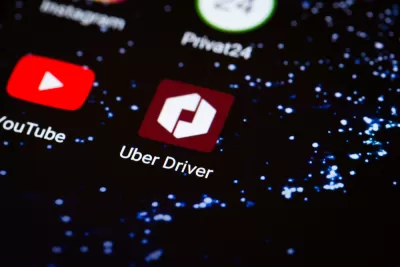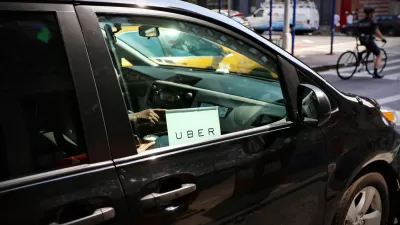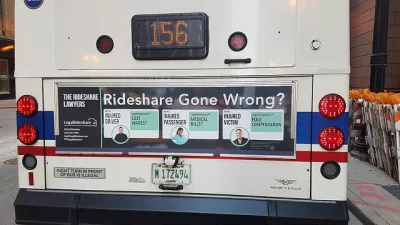Access to data for gig workers can provide a valuable source of information and bargaining power in a traditionally opaque and risky industry.

With gig work becoming an increasingly essential form of income for many Americans, the data that workers provide to the companies that employ them is also gaining in value—and workers are taking notice, writes Karen Gregory. "Absent employment status, gig work is a form of self-employment, and workers should enjoy autonomy, flexibility, and choice about when and how to work, as well as have clear information about how to stay safe while working and how to mitigate the risks associated with self-employment."
Although companies have remained relatively opaque about their data collection and usage practices, workers are calling for access to platform data and transparency. According to Gregory, "Thus far, the gig economy has operated as an unregulated testing ground for managerial and logistics data science, but the challenges posed by automated decision processes are by no means limited to the gig economy. The data harms currently faced by Uber drivers should be seen as harbingers for workers more broadly." In London, drivers for Uber are pooling their data in a worker-owned trust that puts data management in their own hands and has helped workers challenge the company on wages and unfair termination, for example.
As data becomes a bigger concern for workers, tech can also work in their favor. Developers have designed apps that help workers track their time, identify how wages break down, track underpayment, and communicate and organize with other workers. But traditional unions will also have to "do the work of connecting the dots between the challenges workers currently face, the future of work, and the central role that data and data rights will play" and embrace new ways of organizing and protecting the rights of workers. For their part, governments and courts can add data regulations to legislation governing gig work.
FULL STORY: Worker Data Science' Can Teach Us How to Fix the Gig Economy

Alabama: Trump Terminates Settlements for Black Communities Harmed By Raw Sewage
Trump deemed the landmark civil rights agreement “illegal DEI and environmental justice policy.”

Planetizen Federal Action Tracker
A weekly monitor of how Trump’s orders and actions are impacting planners and planning in America.

Why Should We Subsidize Public Transportation?
Many public transit agencies face financial stress due to rising costs, declining fare revenue, and declining subsidies. Transit advocates must provide a strong business case for increasing public transit funding.

Understanding Road Diets
An explainer from Momentum highlights the advantages of reducing vehicle lanes in favor of more bike, transit, and pedestrian infrastructure.

New California Law Regulates Warehouse Pollution
A new law tightens building and emissions regulations for large distribution warehouses to mitigate air pollution and traffic in surrounding communities.

Phoenix Announces Opening Date for Light Rail Extension
The South Central extension will connect South Phoenix to downtown and other major hubs starting on June 7.
Urban Design for Planners 1: Software Tools
This six-course series explores essential urban design concepts using open source software and equips planners with the tools they need to participate fully in the urban design process.
Planning for Universal Design
Learn the tools for implementing Universal Design in planning regulations.
Caltrans
Smith Gee Studio
Institute for Housing and Urban Development Studies (IHS)
City of Grandview
Harvard GSD Executive Education
Toledo-Lucas County Plan Commissions
Salt Lake City
NYU Wagner Graduate School of Public Service





























